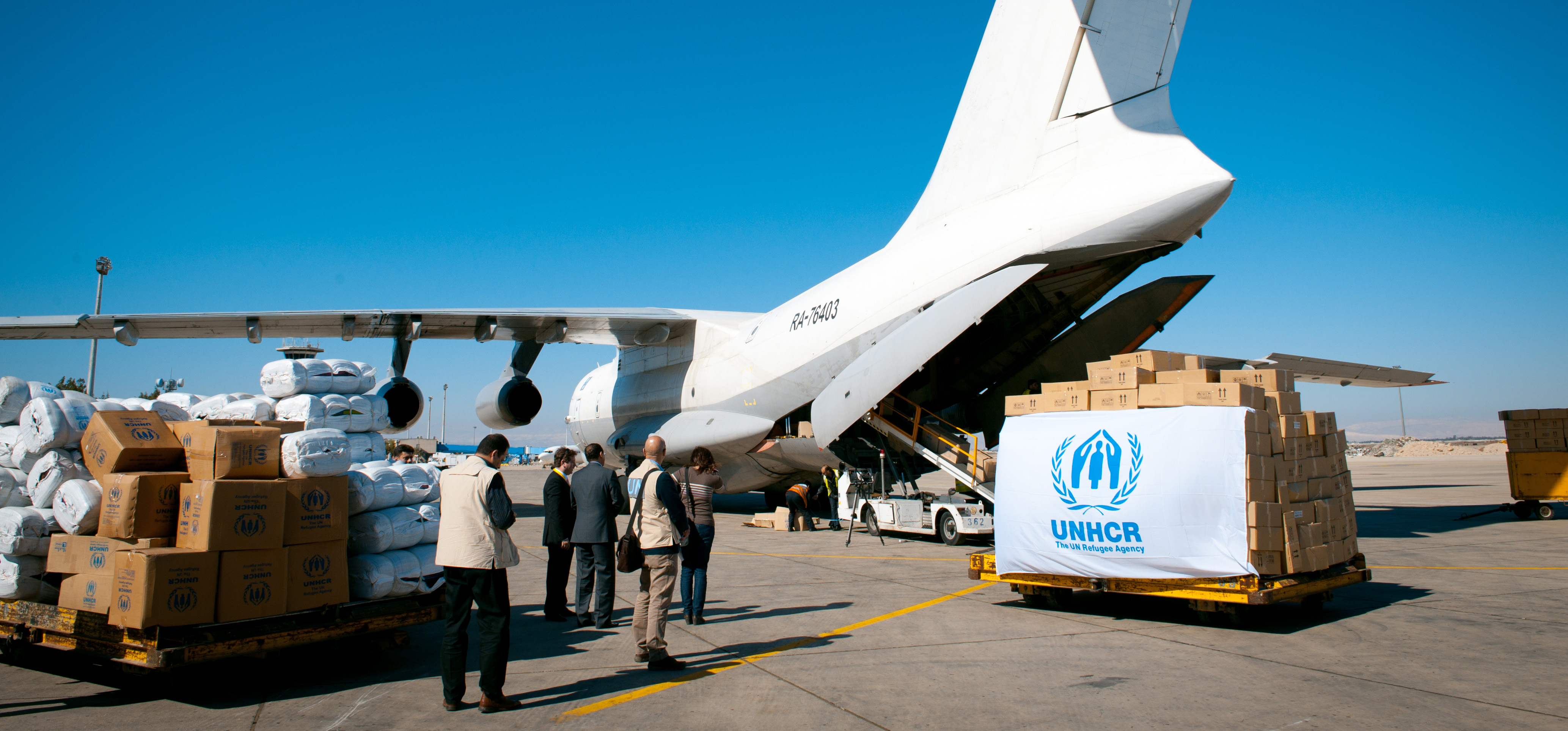Core Relief Items (CRIs) sometimes known as Non Food items (NFIs) are items other than food used in humanitarian contexts when providing assistance to those affected by natural disasters or crisis. In Syria, UNHCR’s CRI kits include essential household items such as mattresses, blankets, plastic sheets, containers for water, cooking utensils and hygiene kits. In addition, other items can be added to the kits during times of extra hardship, such as rechargeable fans in very hot weather and portable heaters, rubber boots, sleeping bags and winter clothes during the harsh winters in Syria.
In addition due to the cyclical nature of displacement in Syria, the loss of NFIs means that the affected population often need repeated assistance. Thus distributed items often need to be replaced because they have been lost, damaged, have exceeded their life-span or were left behind
UNHCR project targets to support Internally Displaced People (IDP) and other affected population in need with NFIs, prioritizing most vulnerable groups and the people in hard to reach.
In 2017, UNHCR in Syria reached more than 3,500,000 vulnerable people with at least one Core Relief Item in 14 governorates.
Across Conflict Lines
In its eighth year,Within the overall 13.1 million people in need, there are 5.6 million facing particularly acute needs. Amongst these, six population groups are deemed most vulnerable due to exposure to risk factors such as besiegement, hostilities, displacement and limited access to basic goods and services.
In 2017, UNHCR participated in 16 inter-agency convoys through 29 rounds, delivering multi-sectoral humanitarian assistance to internally displaced people in 21 locations in five governorates (Rural Damascus, Damascus, Homs, Idleb, Deir-es-Zour). Through cross-line missions to hard-to-reach areas, 381,905 individuals were assisted.
A total of 56 cross-border convoys took place in 2017: 31 through the Bab Al Hawa crossing in Turkey and 25 through the Ramtha crossing in Jordan. These missions provided CRIs for 479,880 individuals in the Daraa, Quneitra, and Idlib governorates.
Winterization
The winter conditions caused great suffering to many Syrians, especially in contested and hard-to-reach areas. Temperatures fell as low as minus 13 degrees centigrade in many areas in the country.
On 28 February 2018, UNHCR concluded its Winterization Programme for the years 2017-2018. Since it started in September 2017, UNHCR supported 1,102,388 individuals, reaching new governorates this year, namely Deir-es-Zour.
Despite the fact that UNHCR initially reached its target of one million for the winterization programme, it continued providing humanitarian assistance for the winter season with the aim to reach out those who are still in urgent needs and affected by the crisis.
Priority was given to the newly displaced, people in hard-to-reach areas and people with specific needs and vulnerabilities such as unaccompanied minors, the older person, female-headed households, persons with disabilities or mental health problems, and individuals suffering from serious health conditions and chronic diseases.

